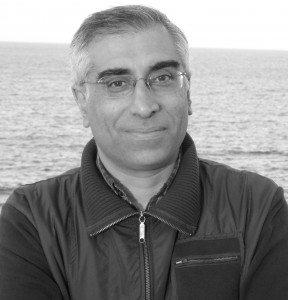November 17, 2015
Western University, London, ON
Digital Security, Precarious Knowledge Workers & Global Freedom of Expression
United Nations Special Rapporteur on the Right to Privacy
A Special Rapporteur is an independent expert appointed by the United Nations Human Rights Council to examine and report back on a country situation or a specific human rights theme. This position is honorary and the expert is not United Nations staff nor paid for his/her work. The Special Rapporteurs are part of the Special Procedures of the Human Rights Council.
In July 2015, the Human Rights Council appointed Prof. Joseph Cannataci of Malta as the first-ever Special Rapporteur on the right to privacy. The appointment is for three years.
As Special Rapporteur, he is mandated by Human Rights Council Resolution 28/16:
(a ) To gather relevant information, including on international and national frameworks, national practices and experience, to study trends, developments and challenges in relation to the right to privacy and to make recommendations to ensure its promotion and protection, including in connection with the challenges arising from new technologies;
(b ) To seek, receive and respond to information, while avoiding duplication, from States, the United Nations and its agencies, programmes and funds, regional human rights mechanisms, national human rights institutions, civil society organizations, the private sector, including business enterprises, and any other relevant stakeholders or parties;
(c ) To identify possible obstacles to the promotion and protection of the right to privacy, to identify, exchange and promote principles and best practices at the national, regional and international levels, and to submit proposals and recommendations to the Human Rights Council in that regard, including with a view to particular challenges arising in the digital age;
(d ) To participate in and contribute to relevant international conferences and events with the aim of promoting a systematic and coherent approach on issues pertaining to the mandate;
(e) To raise awareness concerning the importance of promoting and protecting the right to privacy, including with a view to particular challenges arising in the digital age, as well as concerning the importance of providing individuals whose right to privacy has been violated with access to effective remedy, consistent with international human rights obligations;
(f) To integrate a gender perspective throughout the work of the mandate;
(g) To report on alleged violations, wherever they may occur, of the right to privacy, as set out in article 12 of the Universal Declaration of Human Rights and article 17 of the International Covenant on Civil and Political Rights, including in connection with the challenges arising from new technologies, and to draw the attention of the Council and the United Nations High Commissioner for Human Rights to situations of particularly serious concern;
(h) To submit an annual report to the Human Rights Council and to the General Assembly, starting at the thirty-first session and the seventy-first session respectively.

